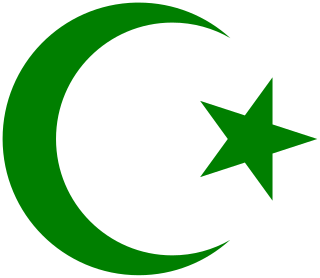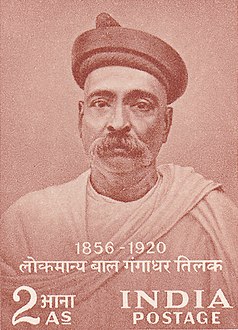
Bal Gangadhar Tilak, born as Keshav Gangadhar Tilak, was an Indian nationalist, teacher, lawyer and an independence activist. He was the first leader of the Indian Independence Movement. The British colonial authorities called him "The father of the Indian unrest." He was also conferred with the title of "Lokmanya", which means "accepted by the people ".
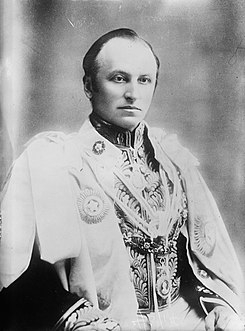
George Nathaniel Curzon, 1st Marquess Curzon of Kedleston,, who was styled as Lord Curzon of Kedleston between 1898 and 1911, and as Earl Curzon of Kedleston between 1911 and 1921, and was known commonly as Lord Curzon, was a British Conservative statesman, who served as Viceroy of India, from 1899 to 1905, during which time he created the territory of Eastern Bengal and Assam, and as Secretary of State for Foreign Affairs, from 1919 to 1924.

Sir Cecil Arthur Spring Rice, was a British diplomat who served as British Ambassador to the United States from 1912 to 1918, as which he was responsible for the organisation of British efforts to end American neutrality during the First World War.
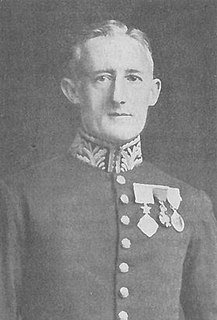
Major-General Sir Percy Zachariah Cox was a British Indian Army officer and Colonial Office administrator in the Middle East. He was one of the major figures in the creation of the current Middle East.
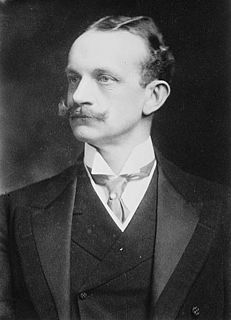
Johann Heinrich Graf von Bernstorff was a German politician and ambassador to the United States from 1908 to 1917.

Air Chief Marshal Sir William Geoffrey Hanson Salmond,, commonly known as Sir Geoffrey Salmond, was a senior commander in the Royal Flying Corps during the First World War. Remaining in the Royal Air Force after the war, he held senior appointments in the Middle East, Great Britain and India. In 1933 Salmond served as Chief of the Air Staff for only a matter of days before being taken ill and subsequently dying from cancer.

The Council of India was the name given at different times to two separate bodies associated with British rule in India.

Sir John Oliver Wardrop KBE CMG was a British diplomat, traveller and translator, primarily known as the United Kingdom's first Chief Commissioner of Transcaucasia in Georgia, 1919–21, and also as the founder and benefactor of Kartvelian studies at Oxford University.

India House was a student residence that existed between 1905 and 1910 at Cromwell Avenue in Highgate, North London. With the patronage of lawyer Shyamji Krishna Varma, it was opened to promote nationalist views among Indian students in Britain. This institute used to grant scholarships to Indian youths for higher studies in England. The building rapidly became a hub for political activism, one of the most prominent for overseas revolutionary Indian nationalism. "India House" came to informally refer to the nationalist organisations that used the building at various times.

Sir Frank Cavendish Lascelles was a British diplomat. He served as Ambassador to both Russia and Germany.

Mandayam Parthasarathi Tirumal Acharya (1887–1954) was an Indian nationalist, communist and anarchist who was among the founding members of the Communist Party of India. In a long political and activist life, Acharya was at various times associated with India House in London and the Hindu-German Conspiracy during World War I when, as a key functionary of the Berlin Committee, he along with Har Dayal sought to establish the Indian National Volunteer Corps with Indian prisoners of war from the battlefields of Mesopotamia and Europe. Acharya subsequently moved in 1919 after the end of the war to the Soviet Union, where he was one of the founding members of the Communist Party of India at Tashkent. However, disappointed with the Communist International, Acharya returned to Europe in the 1920s where he was involved with the League against Imperialism and subsequently is known to have been involved with the International Anarchist movement.
Krushnaji Prabhakar Khadilkar was a Marathi writer from Maharashtra, India. George calls him "a prominent lieutenant of Lokmanya Tilak". He was editor of Kesari, Lokmanya and Navakal. The subject of navakal is political, trade and market price Khadilkar in the beginning of his career wrote prose-plays, but achieved "even greater recognition" with plays like Svayamvara – which had songs which were based on Indian classical music. The notability of his dramatic technique, in his fifteen plays, was to "endow ancient Hindu legends and tales with contemporary political significance". The Encyclopaedia of Indian Literature, remarks that while Annasaheb Kirloskar "laid the foundation of popular sangit natak", it saw its great rise and gradual decline with the advent of Khadilkar. It considers Khadilkar along with Bal Gandharva as "the architect of what later on came to be called the golden age of the Marathi drama".
Sir John Anthony Cecil Tilley, GCMG, GCVO, CB, PC was a British diplomat. He was British Ambassador to Brazil from 1921 to 1925, and Ambassador to Japan from 1926 to 1931.

Sir Francis Oswald Lindley was a British diplomat who was HM Consul-General in Russia in 1919, British High Commissioner in Vienna 1919–1920, Ambassador to Austria 1920–1921, Ambassador to Greece 1922–1923, Minister in Oslo 1923–1929, Ambassador to Portugal 1929–1931, and finally Ambassador to Japan 1931–1934.
Thomas Aubrey Spring Rice, 3rd Baron Monteagle of Brandon was an Anglo-Irish peer and British diplomat.
Sir Walford Harmood Montague Selby was a British civil servant and diplomat.

Walter Burton Harris was a journalist, writer, traveller and socialite who achieved fame for his writings on Morocco, where he worked for many years as special correspondent for The Times. He settled in the country at the age of 19, eventually building himself a fine villa in Tangier where he lived for much of his life. His linguistic skills and physical appearance enabled him to pose successfully as a native Moroccan, travelling to parts of the country regarded as off-limits to foreigners. He wrote a number of well-regarded books and articles on his travels in Morocco and other countries in the Near and Far East. Harris also played a significant, though not always constructive, role in the European diplomatic intrigues that affected Morocco around the turn of the 20th century.
Stephen Edward Spring Rice, was a British civil servant and academic.
The Eastern Committee (EC) was an interdepartmental committee of the War Cabinet of the British Government, created towards the end of World War I. Its function was to formulate a coherent Middle East policy, resolving conflicting visions of involved departments. Its creation was approved by the War Cabinet on 11 March 1918 and it held its first of 49 meetings on 28 March 1918.

